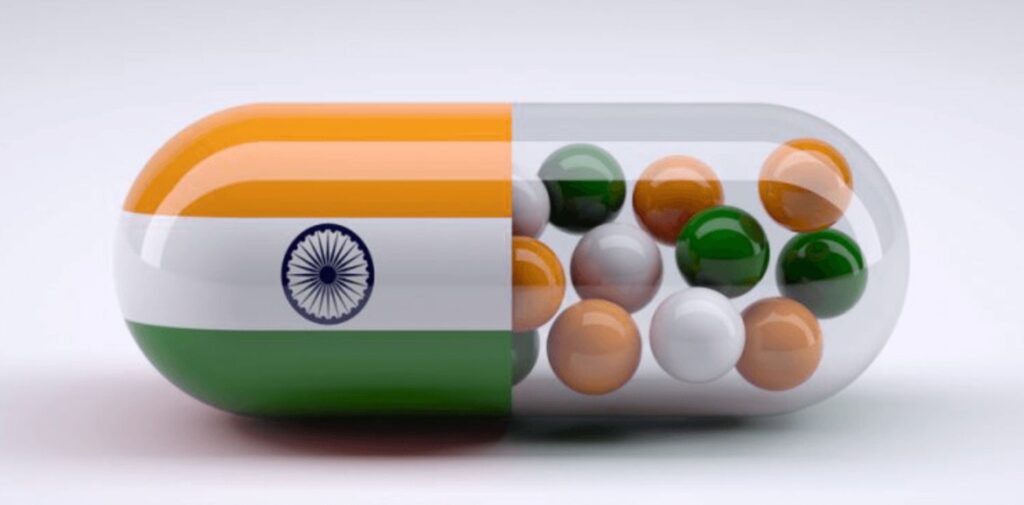India has always been at the forefront when it comes to providing healthcare to its vast and diverse population. With a population of over 1.4 billion people, India’s healthcare system faces numerous challenges, but at the same time, it has a significant opportunity to lead the way in shaping the future of global health systems. As the world grapples with health challenges such as pandemics, aging populations, and the increasing burden of chronic diseases, India’s role in global health is becoming more important than ever. From its medical expertise and production capabilities to its innovations in digital health, India is poised to contribute to the global healthcare landscape in powerful ways.
India’s Healthcare System: A Work in Progress
India’s healthcare system is a mix of public and private services. While the country has made significant progress in terms of life expectancy, vaccination rates, and the availability of health services in urban areas, the rural regions still face gaps in healthcare access. Despite this, India continues to make strides in improving healthcare infrastructure, thanks to government initiatives like Ayushman Bharat (the world’s largest health insurance scheme), and private enterprises offering cutting-edge medical care.
The government is working on expanding health coverage to the rural and underprivileged sections of society, while private hospitals in urban areas continue to provide advanced medical care. However, challenges such as inadequate medical infrastructure, shortage of skilled healthcare workers, and financial constraints remain, making it essential for India to explore innovative solutions to address these issues and become a global leader in healthcare.

India as the World’s Pharmacy: Contributing to Global Healthcare
India has earned the title of “the pharmacy of the world” due to its massive production of affordable generic medicines. India produces around 60% of the world’s vaccines and a significant share of the world’s antiretroviral drugs used to treat HIV/AIDS. The country’s pharmaceutical industry plays a crucial role in providing affordable medicines not only to its own population but also to millions of people around the globe, particularly in low-income and developing countries.
One of the key factors that have contributed to India’s leadership in the global pharmaceutical market is its ability to produce high-quality generic medicines at lower costs compared to other nations. This has made life-saving drugs accessible to millions, particularly in Africa, Asia, and Latin America. As the world continues to battle diseases like tuberculosis, malaria, and more recently COVID-19, India’s role in supplying affordable vaccines and medicines will be even more critical. India has already made substantial contributions to global vaccination efforts, producing billions of doses of the COVID-19 vaccine and distributing them worldwide.
Innovations in Medical Technology and Digital Health
India is also making remarkable progress in the field of medical technology and digital health. The rapid rise of digital health technologies has opened up new avenues for healthcare delivery, and India is emerging as a global hub for telemedicine, mobile health (mHealth), and electronic health records (EHRs). These technologies are transforming how healthcare is delivered, particularly in rural and underserved areas where access to traditional healthcare facilities is limited.
India’s tech-savvy population has embraced digital health solutions, such as teleconsultations and mobile health apps, which allow people to consult doctors, access health information, and monitor their health remotely. This shift has been particularly beneficial during the COVID-19 pandemic, as it allowed patients to continue receiving healthcare without needing to visit hospitals or clinics. Additionally, India’s innovative use of artificial intelligence (AI) and machine learning is helping doctors make accurate diagnoses, and improve patient outcomes, by analyzing vast amounts of medical data quickly and efficiently.
Startups in India like Practo, 1mg, and Aarogya Setu are pioneering in digital health, offering services ranging from online consultations to the sale of medicines, and even contact tracing during the pandemic. These innovations not only improve healthcare access for Indian citizens but also hold the potential to transform healthcare systems in other parts of the world by providing affordable and scalable solutions.

Training Healthcare Professionals: Building Capacity for the Future
India has long been a source of trained medical professionals for the global health workforce. With a rich tradition of medical education, India is home to some of the best medical schools and institutions in the world. Indian doctors, nurses, and allied health professionals are highly sought after in countries around the world due to their expertise, dedication, and affordability.
India’s ability to produce highly skilled healthcare professionals is a valuable asset in addressing global health shortages. In addition to providing healthcare workers for international markets, India also plays a crucial role in training health professionals in countries that face critical shortages, particularly in Africa and Southeast Asia.
In recent years, India has also focused on building a robust medical workforce to address its own healthcare challenges. With more than 500,000 doctors and 1.5 million nurses, India is striving to increase the number of healthcare professionals to meet the needs of its growing population. This will not only help in improving healthcare outcomes within the country but also allow India to continue contributing to the global healthcare workforce.
Addressing Health Equity: India’s Efforts to Ensure Healthcare for All
One of India’s most significant contributions to global health is its ongoing efforts to ensure health equity for all citizens. With the introduction of the Ayushman Bharat scheme, the government aims to provide health insurance to over 500 million people, particularly the poor and vulnerable sections of society. This initiative is a game-changer in a country where millions of people have limited or no access to health insurance.
The focus on affordable healthcare is critical, as India’s large population makes it difficult to provide equal access to health services. The Pradhan Mantri Jan Arogya Yojana (PMJAY) scheme under Ayushman Bharat is one of the largest health insurance programs globally, and it covers a wide range of medical treatments, including hospitalization, surgeries, and diagnostics. By making healthcare affordable and accessible, India is setting an example for other countries, particularly in the Global South, on how to build equitable health systems that cater to the needs of the marginalized.
Additionally, India has been an active participant in global health discussions, particularly at forums like the World Health Organization (WHO). India’s advocacy for affordable medicines, access to vaccines, and strengthening of health systems in developing countries is helping to shape global health policies.

The Future of Global Health: India’s Pivotal Role
As we look to the future, India’s role in shaping global health systems will only grow more critical. With its population of over 1.4 billion people, India’s health challenges are both vast and complex, but they also present opportunities for innovation. India’s healthcare system is evolving, and the country is making great strides in addressing public health issues through policies, technology, and partnerships.
Moreover, India’s pharmaceutical, medical, and technology sectors have already begun to lead the way in global health. The country’s contributions to affordable medicines, vaccines, and innovative health technologies are crucial in the fight against global health crises. India’s emphasis on universal healthcare, medical training, and health equity also offers a model that can inspire other nations to follow suit.
India’s experience and expertise in public health, combined with its emerging role as a hub for health technology and innovation, place it in a unique position to influence the direction of global healthcare in the coming decades. By continuing to invest in healthcare infrastructure, education, and innovation, India can lead the way in ensuring that health systems around the world are accessible, equitable, and sustainable.
Conclusion: Future of Global Health Systems
India’s contributions to global health have already been transformative, and the country is well-positioned to continue playing a key role in shaping the future of global health systems. With its vast medical expertise, technological innovations, and commitment to improving healthcare access for all, India is setting an example for the rest of the world. By addressing its own healthcare challenges while simultaneously contributing to global health efforts, India is helping to build a healthier, more equitable future for people everywhere.




